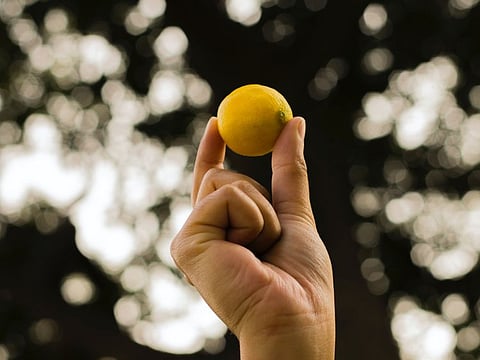Making lemonade from lemons
The bounty of nature is priceless, on par with little else

Also In This Package
At night, when I sit on my balcony, the steep hills between Marbella and Fuengirola turn golden in the last rays of sunshine. In the morning, to the east, the first rays of sun glance off the pine-covered hills and together with the dawn chorus, announcing the advent of a new day.
There is something very magical about sunrise and sunset. There is a certainty that assures my soul. They are constants that mark the passage of time day by day.
At night, frogs gather in ponds where by day, bad golfers have lost their balls between the tee and fifth hole. Those poor golfers take two shots — but I will gladly take two minutes to listen to the guttural overtures of the frogs each evening. It is as if they are debating the events of the day, the comings and goings around the fifth hole. It is their clubhouse.
The trees in the village hang heavy with figs. Deep and purple and ready to drop from their sagging green leaves supported by grey limbs. They are sweet, with a natural texture that feels like a thick jam.
Elsewhere, lemons fall to the ground with each gentle breeze that finds its way through the mountain passes up from the Mediterranean. The lemons are the size of my fist, with a thick pith that gives way to reveal segments of flavour and juice. I have collected some and followed the advice to turn lemons into lemonade.
Some olive trees grow gnarled and green in a shade that is distinctive and unlike nothing else in nature. Olives and olive oils are a food group all of their own in Spain. I am reminded of the vast tubs of olives that are part and parcel of many supermarkets back in the UAE.
Here, there are various orange groves too, heavy with ripened spheres that are equally susceptible to the those fleeing sea breezes. One of the joys of being here is the fresh squeezed orange juice that is a served in every cafe and restaurant that opens for breakfast.
The locals who bother still to harvest the oranges get 15 cents a kilogramme at market — hardly worth the time and effort. That’s why so many now have changed out their citrus fruits for avocado trees. At €2 a kilo they make for a more reasonable return for their efforts.
The green avocados are smaller than you would see in the grocery department of most popular supermarkets, their flesh firmer but flavour is more intense. More natural.
There is no need for greenhouses or polytunnels to prod nature to provide its bounty. The long summer days and mild winters means that there is no shortage of such produce that farmers are proud to sell mornings in market squares before spending afternoons, like those frogs, at their own waterholes, debating the events of the day.
There is a town here, an old town, one that was formally settled by Romans just like others had for generations before. Then Islam came and named the area Alhaurin — which roughly translates, the locals say, as Allah’s garden. It is easy to see why.
But those fields and fruits, old ways and easy days, markets and harvests are slowly fading. Now there is pressure for golf greens and resorts, places where the only crop would be the flags flying from each of 18 holes.
Where farmers work, the overseas contingents of the wrinkled seek to retire in their own little corner of paradise.
There is a choice between the family farm or the family apartment, such is the nature of things. But the nature of such things as olive groves, fig trees, oranges and lemons are a bounty without price.









